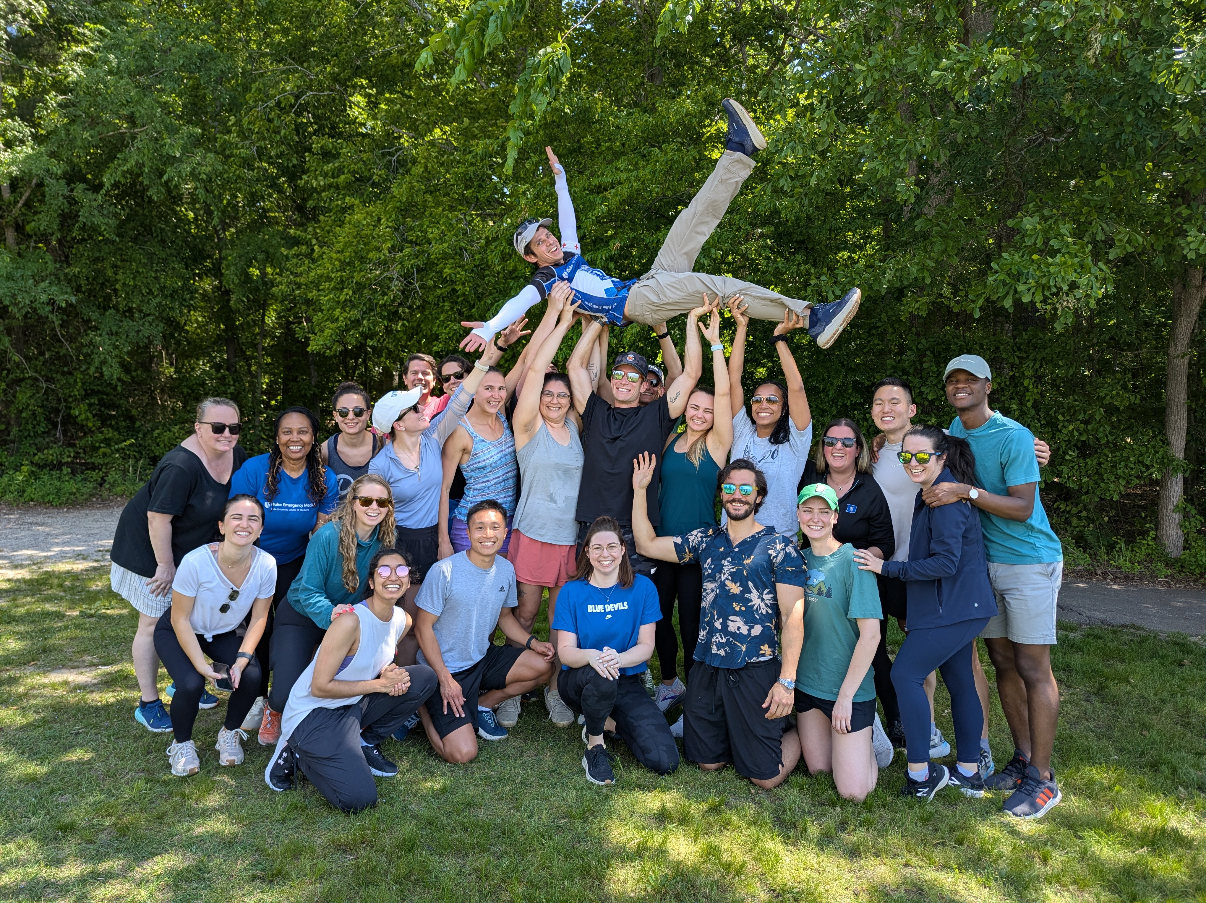
Our residency is a community of physician-scholars, committed to the best in patient care and service. Our residents represent all regions of the U.S. and are leaders in our department, running the clinical teams, teaching each other and medical students, participating in administrative committees that continually improve our delivery of emergency medical care, and contributing to research that advances knowledge in our field.
Life in Durham
We think you’ll find everything you need for an enriching life and training experience in and around Durham, North Carolina — our home. It combines the best of a big city and a small town: the people are friendly, there’s plenty of job opportunities and things to do, and it’s affordable.
